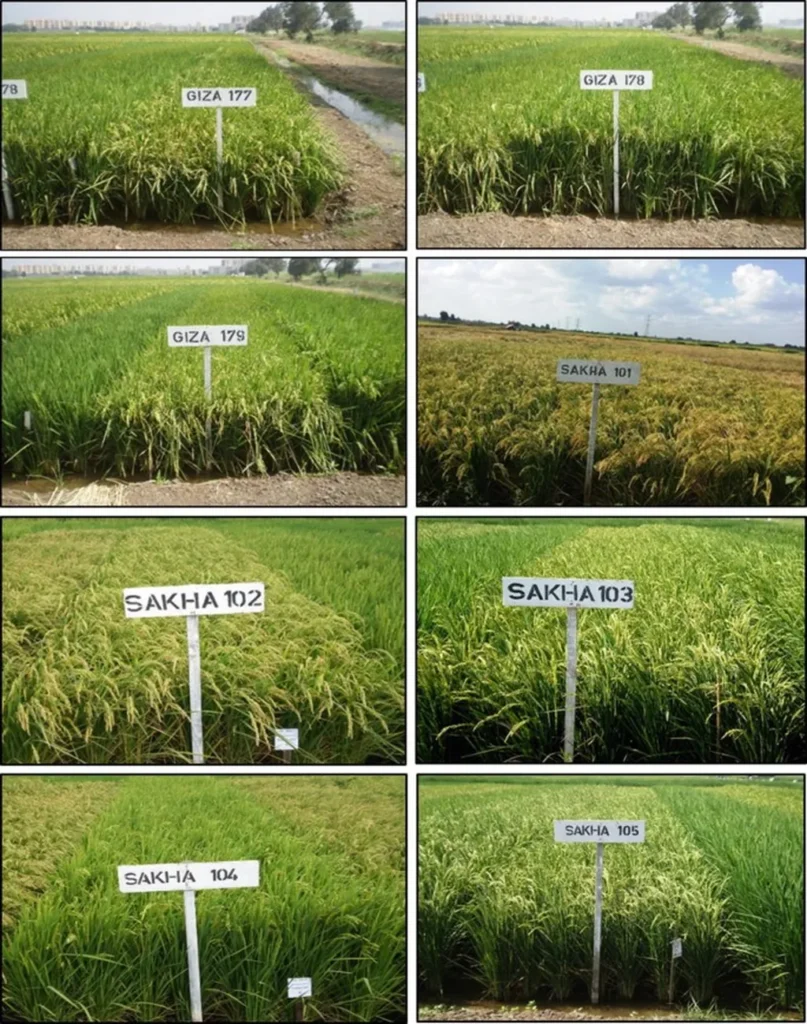In the heart of Egypt, a groundbreaking study is reshaping the future of rice cultivation, promising enhanced yields, improved quality, and robust disease resistance. Led by Samah M. Abdelkhalek from the Biotechnology Lab at the Rice Research and Training Center, this research integrates in vitro breeding, Best Linear Unbiased Prediction (BLUP) modeling, and marker analysis to accelerate rice improvement.
Rice, a staple food for over half the world’s population, is under constant threat from diseases and the pressures of climate change. Traditional breeding methods, while effective, can be time-consuming. Abdelkhalek’s study, published in the journal *Frontiers in Plant Science* (translated to English as “Frontiers in Plant Science”), offers a promising alternative. “In vitro-derived lines possess a significant opportunity to develop new plant material in a shorter time frame compared to conventional breeding,” Abdelkhalek explains.
The study developed new rice genotypes through in vitro culture, observing significant improvements in yield, quality, and blast disease resistance compared to commercial cultivars. The top 5% of these genotypes showed a predicted genetic gain of 0.19 kg per square meter for grain yield, a 20.88% improvement over the mean yield of 0.91 kg per square meter.
BLUP modeling identified two standout genotypes, AC-2286 and AC-2729. Both outperformed local cultivars in yield, but only AC-2286 demonstrated resistance to blast disease under both artificial and natural conditions. Marker-trait association revealed that AC-2729 carries a favorable marker allele for grain yield, while AC-2286 possesses several favorable blast-resistant alleles.
This research holds substantial commercial implications for the agricultural sector. By accelerating the breeding process, it can help meet the growing global demand for rice more efficiently. “These findings increase the potential of the in vitro-derived lines for enhancing rice productivity, quality, and disease resistance in a few years compared to classic breeding,” Abdelkhalek notes.
The integration of in vitro breeding, BLUP prediction, and marker analysis represents a significant advancement in rice breeding. It offers a faster, more efficient way to develop improved rice varieties, ensuring food security and sustainability. As the world grapples with the challenges of climate change and population growth, such innovations are crucial.
This study not only provides valuable insights for future breeding programs but also underscores the importance of investing in agricultural research. By embracing these technologies, the agricultural sector can enhance productivity, improve food quality, and build resilience against diseases and environmental stresses. The future of rice cultivation is here, and it’s looking promising.

